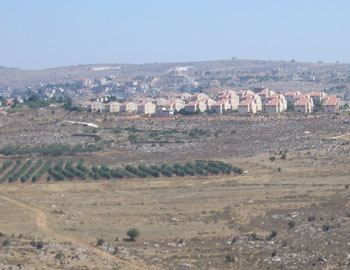 All the settlements in the West Bank are illegal under international humanitarian law, whether or not they are officially recognized by the Israeli government. The various governments of Israel ignored this prohibition and established more than 130 recognized settlements throughout the West Bank and on the territory it annexed to Jerusalem.
All the settlements in the West Bank are illegal under international humanitarian law, whether or not they are officially recognized by the Israeli government. The various governments of Israel ignored this prohibition and established more than 130 recognized settlements throughout the West Bank and on the territory it annexed to Jerusalem.
According to the Sasson report, to be legal under local law, an Israeli settlement must meet each of the following four criteria:
1. the Israeli government issued a decision to establish the settlement;
2. the settlement has a defined jurisdictional area;
3. the settlement has a detailed, approved outline plan;
4. the settlement lies on state land or on land that was purchased by Israelis and registered under their name in the Land Registry.
According to B'Tselem’s research, Ofra meets only the first of these conditions: in 1979, four years after its establishment, the government declared it an official community. However, no jurisdictional area has ever been defined for Ofra, no detailed outline plan has been approved for the settlement, and no lawful building permits were ever issued for it. Thus, the entire community of Ofra, with its hundreds of residential units, was built unlawfully.
The reason that a jurisdictional area and an outline plan were never approved for Ofra is not governmental objection to the establishment of the settlement; rather, it is the failure to meet the fourth condition. Large sections of the settlement’s built-up area are registered under Palestinian names in the Land Registry, and Israeli settlements may not be built on land of this kind, according to government decisions and Israeli High Court rulings.





 All unaccompanied immigrant children who are pregnant, many by rape, are being moved to a single...
All unaccompanied immigrant children who are pregnant, many by rape, are being moved to a single... Legal experts have documented almost 1,000 incidents in which pro-Palestine voices have been allegedly targeted in...
Legal experts have documented almost 1,000 incidents in which pro-Palestine voices have been allegedly targeted in...






























